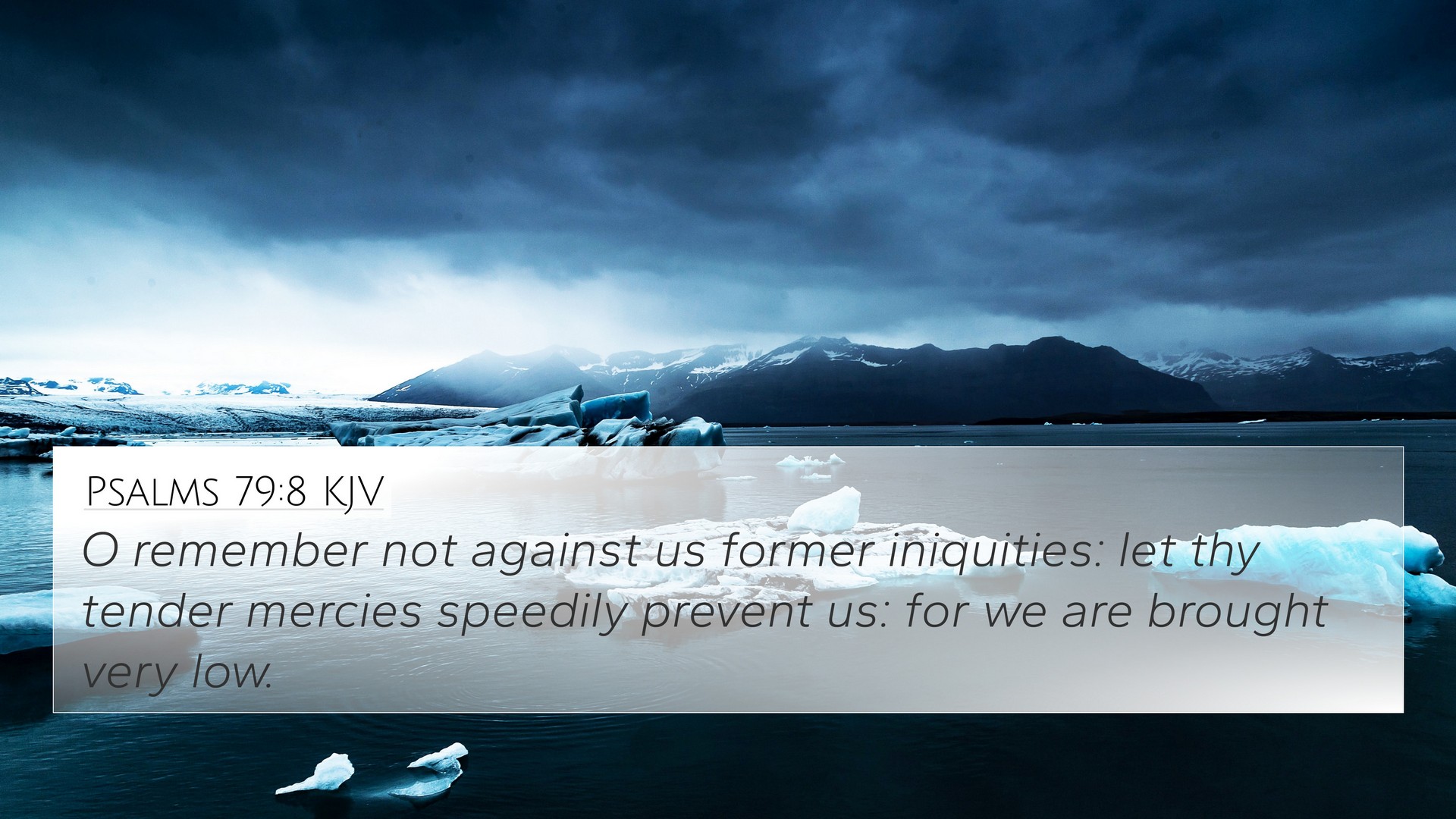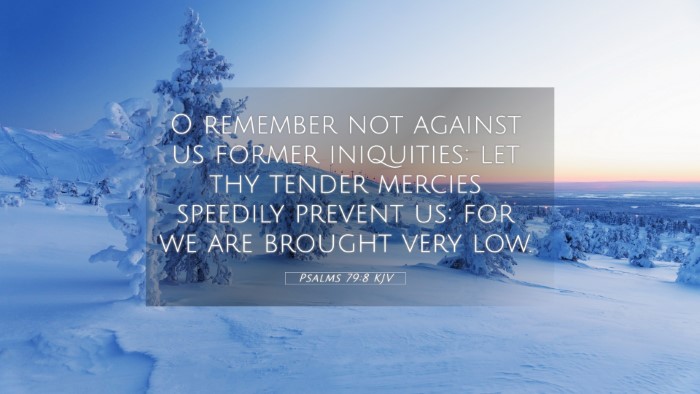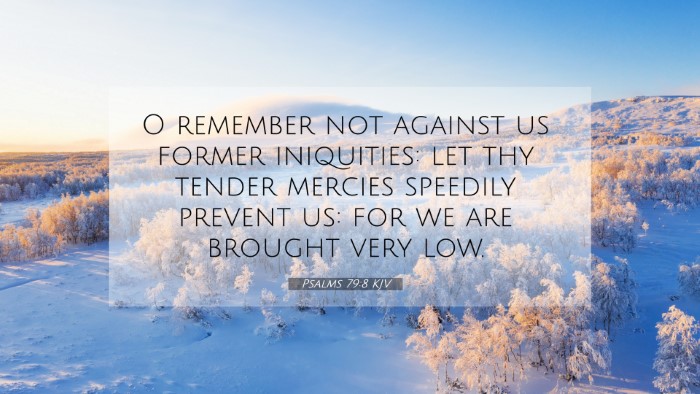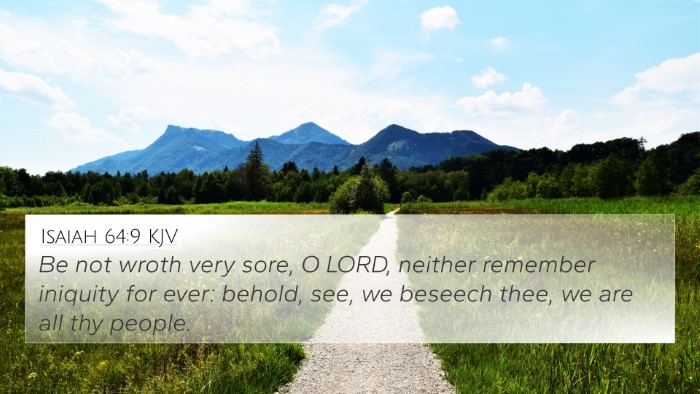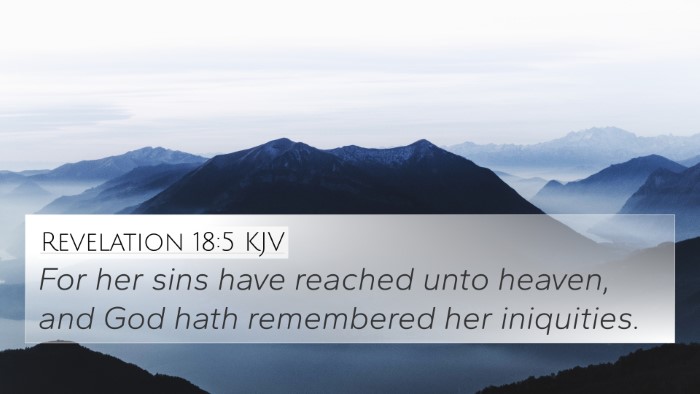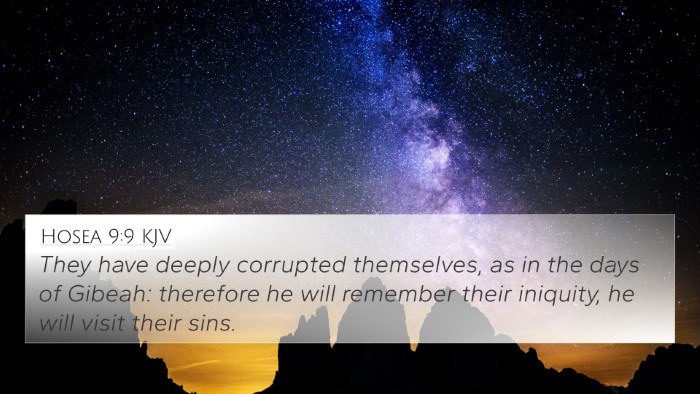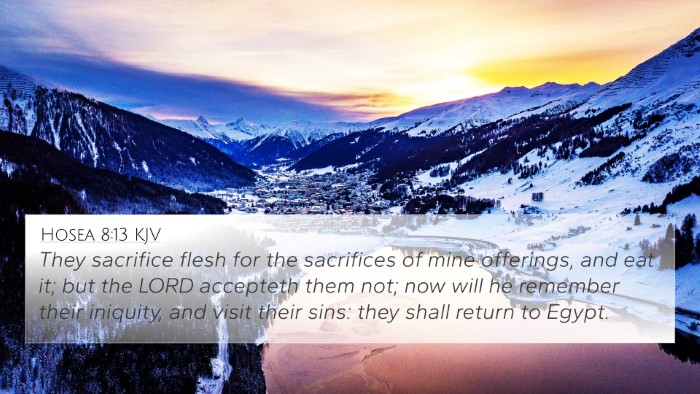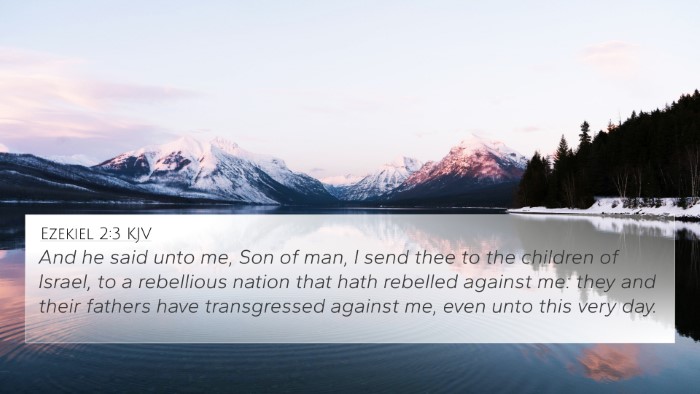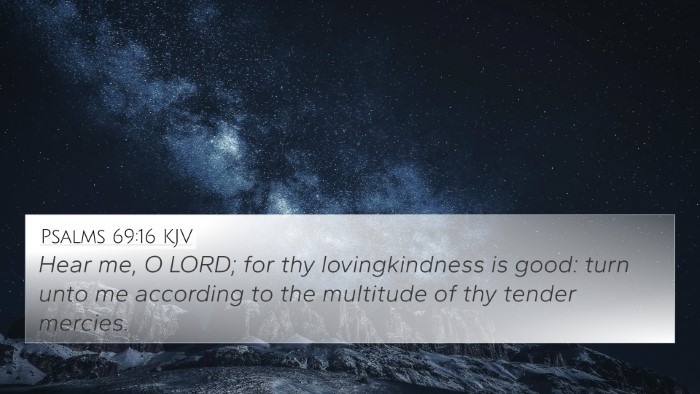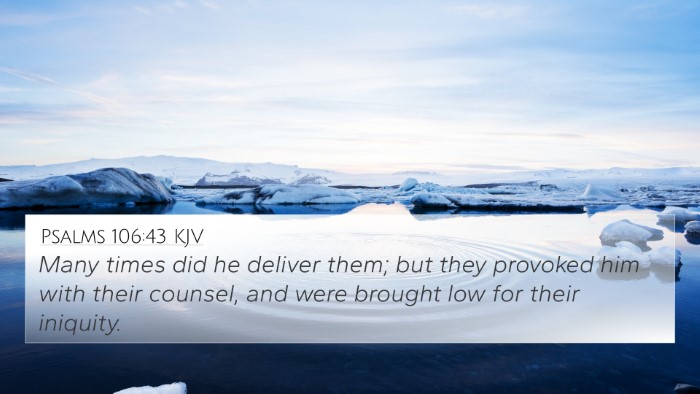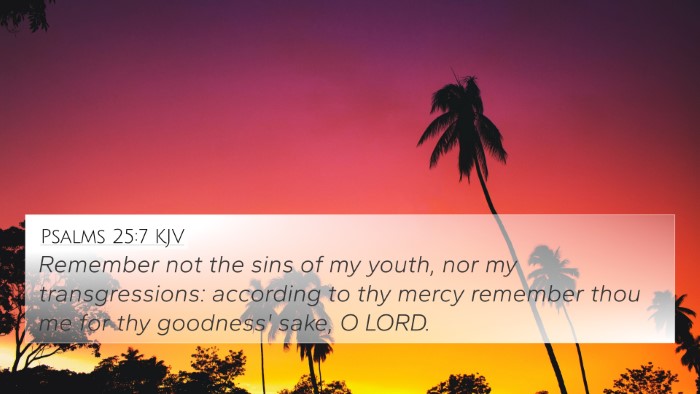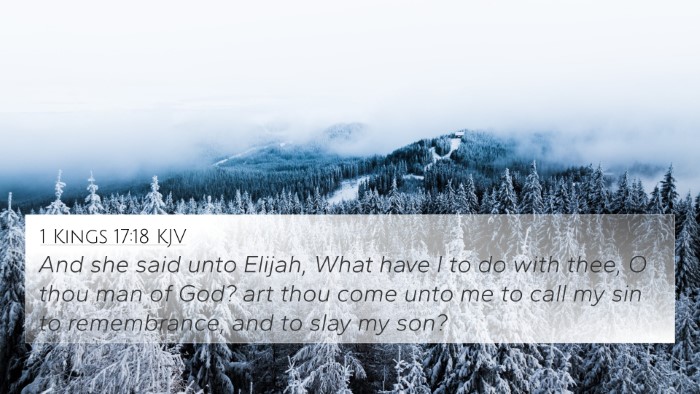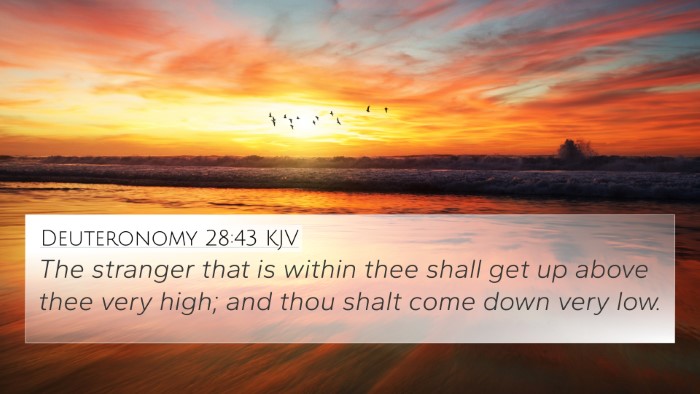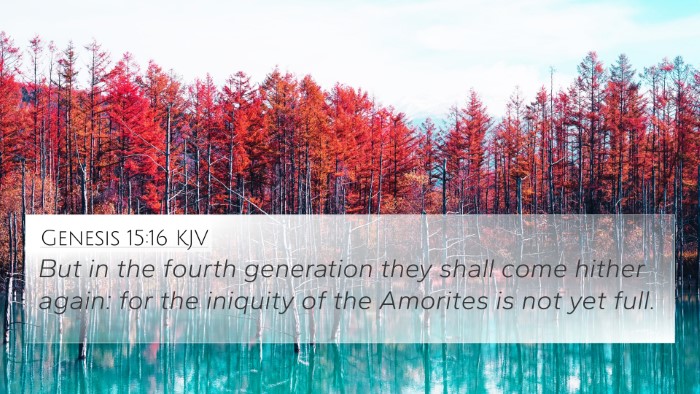Understanding Psalms 79:8
Psalms 79:8 states: “Oh, do not remember against us former iniquities; let your compassion come speedily to meet us, for we are brought very low.” This verse encapsulates a plea for divine mercy amidst distress, reflecting profound themes of repentance, remembrance, and God's loving-kindness.
Commentary Insights
This verse is part of a psalm that addresses God’s people during a time of desolation and suffering, likely following a significant calamity. Below are insights derived from notable public domain commentaries:
- Matthew Henry: Henry emphasizes the importance of God's mercy over past sins. He points out that the psalmist seeks not just deliverance but also forgiveness, focusing on God’s nature as compassionate. Henry suggests a deep yearning for restoration, illustrating how the weight of former iniquities can overshadow the faithful.
- Albert Barnes: Barnes interprets the phrase “do not remember against us former iniquities” as an appeal to God’s forgiving nature. He notes that the acknowledgment of sin is crucial for restoring relationship with God, highlighting the importance of recognizing one’s lowly state to receive divine compassion and assistance.
- Adam Clarke: Clarke provides a historical context, stating the psalm reflects Israel’s lamentation over national sins and the plea for intercession. He emphasizes that this call for compassion reinforces the idea that spiritual renewal comes from acknowledging past transgressions. Clarke additionally stresses God’s readiness to forgive when one sincerely repents.
Thematic Bible Verse Connections
This verse can be connected with various other scriptures, illustrating overarching Biblical themes. Here are some key cross-references:
- Psalm 25:7: “Remember not the sins of my youth, nor my transgressions; according to your steadfast love remember me, for the sake of your goodness, O Lord.”
- Isaiah 43:25: “I, I am he who blots out your transgressions for my own sake, and I will not remember your sins.”
- Micah 7:18: “Who is a God like you, pardoning iniquity and passing over transgression for the remnant of his inheritance?”
- Hebrews 8:12: “For I will be merciful toward their iniquities, and I will remember their sins no more.”
- 2 Chronicles 7:14: “If my people who are called by my name humble themselves, and pray and seek my face and turn from their wicked ways, then I will hear from heaven and will forgive their sin and heal their land.”
- 1 John 1:9: “If we confess our sins, he is faithful and just to forgive us our sins and to cleanse us from all unrighteousness.”
- Psalm 51:1-2: “Have mercy on me, O God, according to your steadfast love; according to your abundant mercy blot out my transgressions. Wash me thoroughly from my iniquity and cleanse me from my sin!”
Reflections on Divine Mercy
Psalms 79:8 serves as a poignant reminder of the human condition and the need for divine grace. The plea for God not to remember our sins underlines both vulnerability and hope, a theme resonant throughout the entirety of scripture.
Conclusion
This exploration of Psalms 79:8 highlights the profound connection between human repentance and divine compassion. Engaging with cross-references enriches the understanding of themes such as forgiveness, mercy, and the passionate plea for restoration that runs throughout the Biblical narrative.
Tools for Bible Cross-Referencing
To delve deeper into such connections, consider using tools for Bible cross-referencing, including:
- Bible concordance to find related verses efficiently.
- Bible cross-reference guide for thematic study.
- Cross-reference Bible study methods to enrich personal study and sermon preparation.
- Comprehensive Bible cross-reference materials for extensive exploration of Scripture themes.
In conclusion, exploring Psalms 79:8 provides a lens into the heart of the believer’s search for forgiveness and restoration. By identifying connections across scripture, one gains a richer understanding of God’s character and the relational dynamics depicted within the sacred text.
